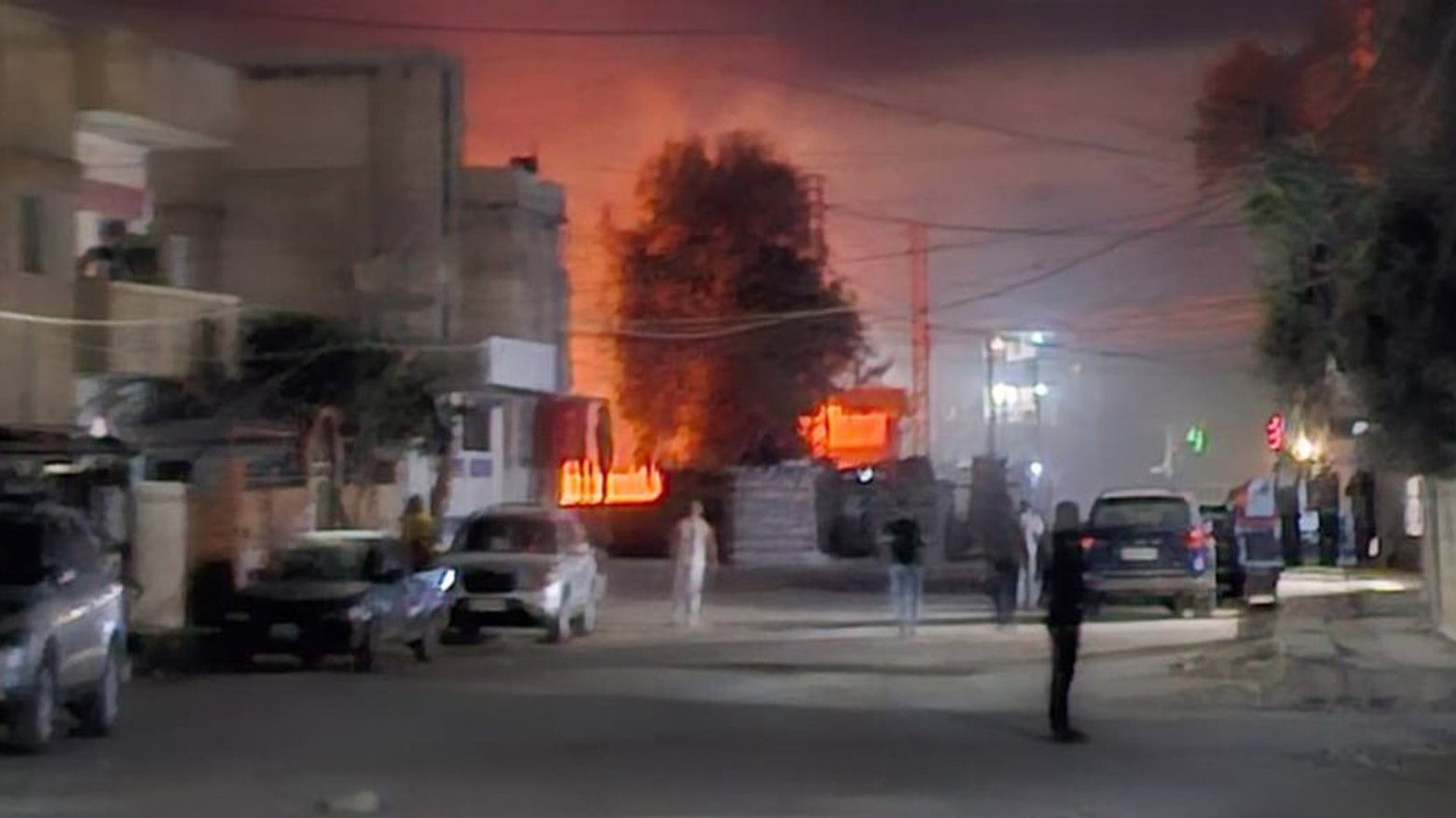Nine Killed in Turkish Airstrikes on Rural Kobani, Says SDF
In a statement released via Telegram, the SDF reported, "A Turkish aircraft bombed a family working in agriculture south of Kobani late Sunday night."

ERBIL (Kurdistan24) – The Syrian Democratic Forces (SDF) announced late Sunday that nine civilians were killed in Turkish airstrikes targeting the rural outskirts of Kobani, escalating an already volatile situation in northeastern Syria (also known as Rojava).
In a statement released via Telegram, the SDF reported, "A Turkish aircraft bombed a family working in agriculture south of Kobani late Sunday night." The airstrike, which struck the area between Barkh Botan villages, killed nine members of a single family and left two others injured.
The attack is the latest in a series of Turkish military operations targeting regions controlled by the SDF, a U.S.-backed armed group, that played a key role in the fight against ISIS in Syria. Ankara defends its ongoing cross-border strikes by saying that the People’s Protection Units (YPG), the backbone of the SDF, are linked to the Kurdistan Workers’ Party (PKK), which Turkey, the United States, and the European Union designate as a terrorist organization.
The PKK has waged an armed insurgency against Turkey since 1984, a conflict that has long shaped Ankara’s security policies in the region.
The airstrikes come at a critical moment as northeastern Syria experiences shifting political and military dynamics. Turkey has increased pressure on Syria’s newly appointed transitional president, Ahmed Al-Sharaa, to address what Ankara perceives as the ongoing YPG threat.
Following the overthrow of President Bashar Al-Assad in December after a 13-year civil war, Syria’s new government has sought to consolidate power and eliminate non-state armed actors within its borders.
In a landmark move in February, Abdullah Ocalan, the imprisoned founder of the PKK, made a historic appeal urging his party to lay down its arms and dissolve itself. The statement has led to increased diplomatic efforts aimed at de-escalating hostilities between Turkey and Kurdish factions in Syria and Iraq.
Despite this, Turkey has continued its military operations in northern Syria, arguing that the SDF’s control over key border areas remains a direct security threat. Ankara’s policy has been clear: it will not tolerate any Kurdish-led governance along its southern border, fearing it could embolden PKK-linked factions inside Turkey.
Amid these developments, an agreement was reached between the SDF and Syria’s new leadership, signaling a significant shift in the political landscape of northeastern Syria. Transitional President Ahmed al-Sharaa and SDF commander Mazloum Abdi signed a deal stipulating the gradual integration of all civil and military institutions in the region under Syrian state authority.
According to the agreement, border crossings, airports, and oil and gas fields will be reintegrated under Damascus' control by the end of the year.
This agreement represents the most serious effort yet to reintegrate Kurdish-led administrations into the Syrian state following years of de facto autonomy. However, the deal also places the future of the SDF in question, particularly as Damascus, under pressure from Ankara, may push for a full disbandment of the group.
With airstrikes continuing and diplomatic efforts intensifying, northeastern Syria stands at a crossroads. The latest attack in Kobani underscores the fragile nature of the region, where geopolitical interests clash over unresolved historical grievances.
The coming months will determine whether Syria’s new government can balance Turkish demands with the political survival of the SDF, or if military escalations will continue to define the region’s future.